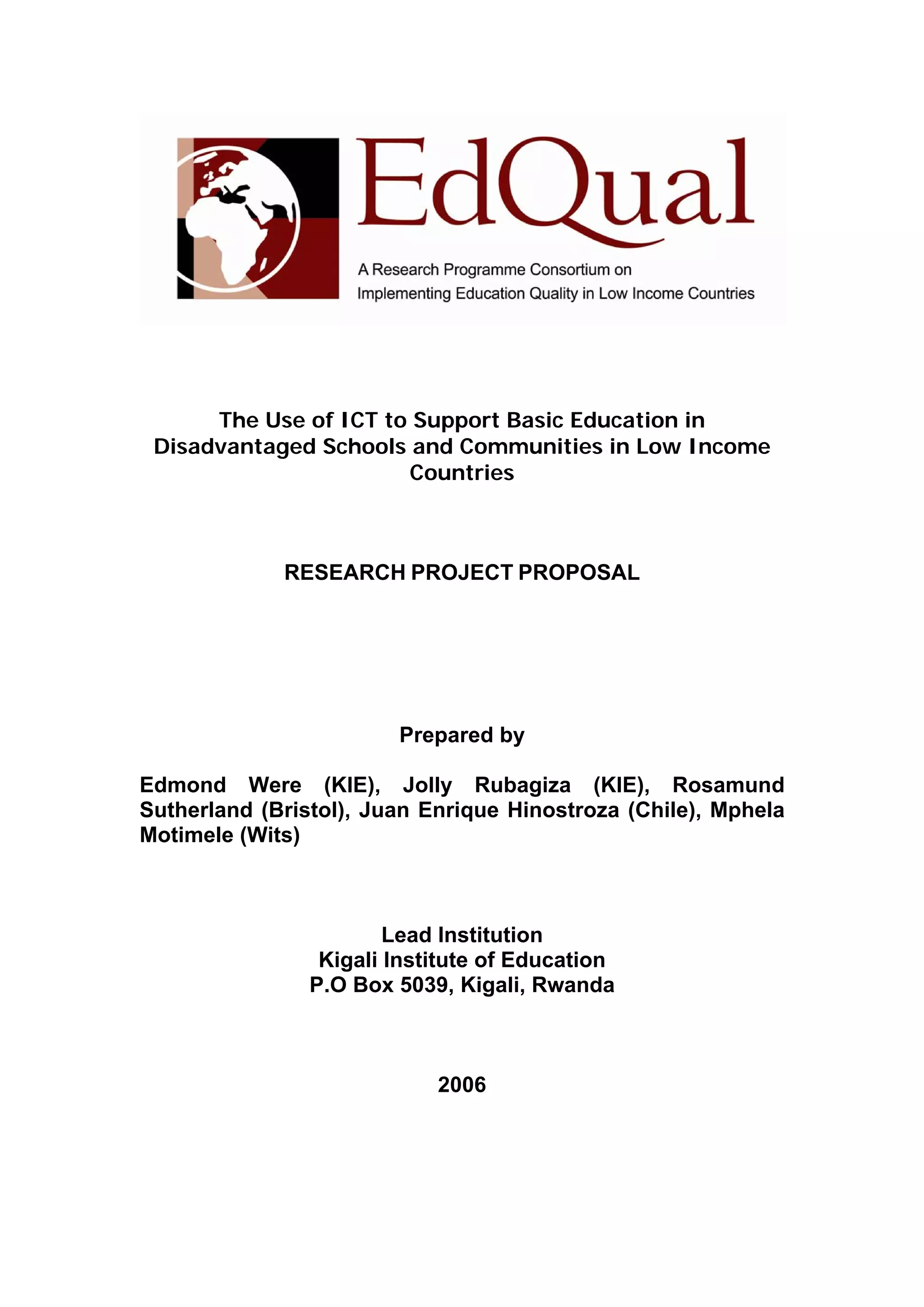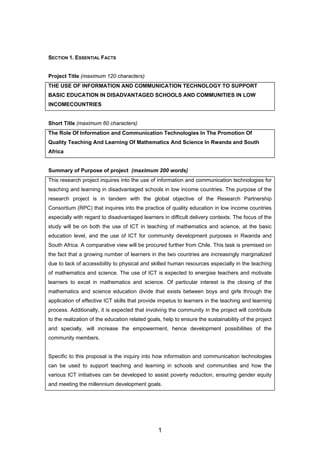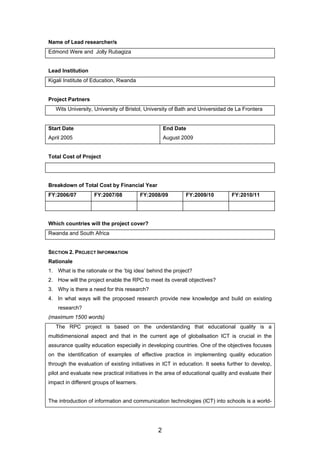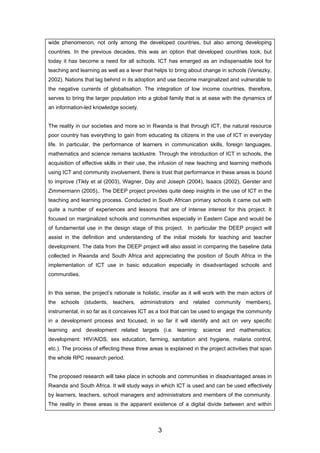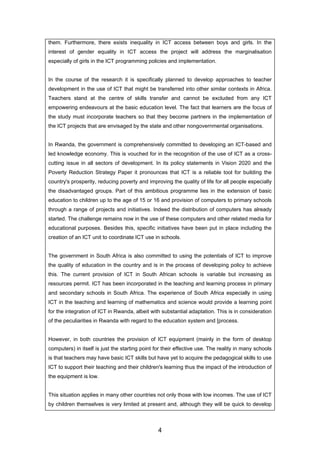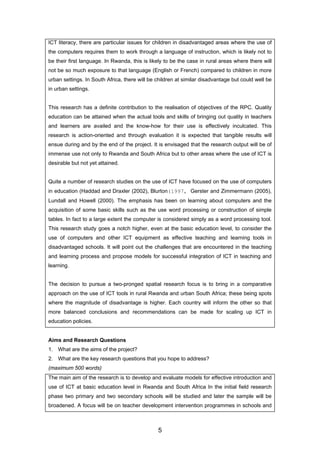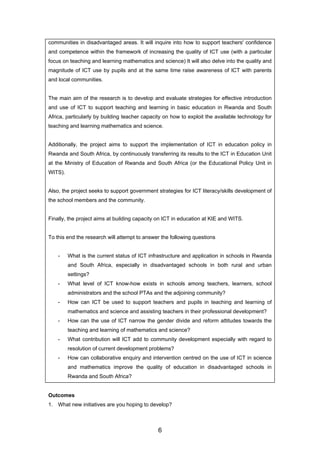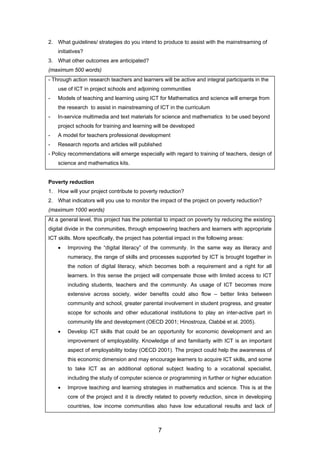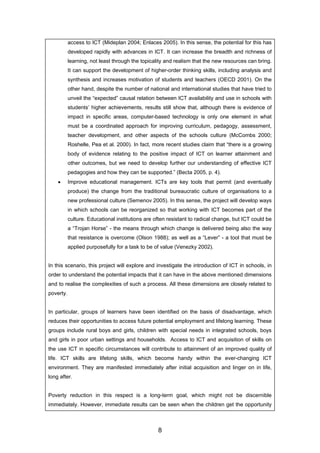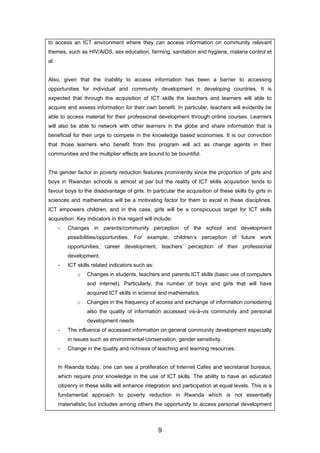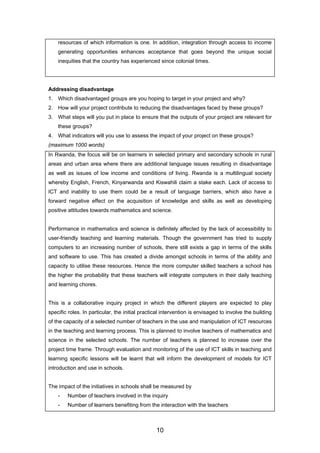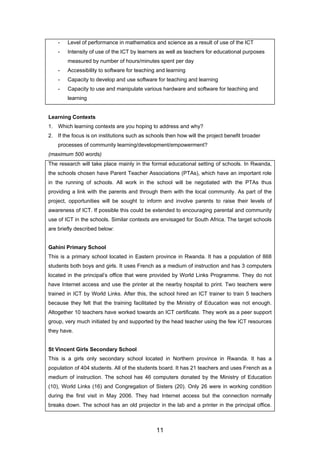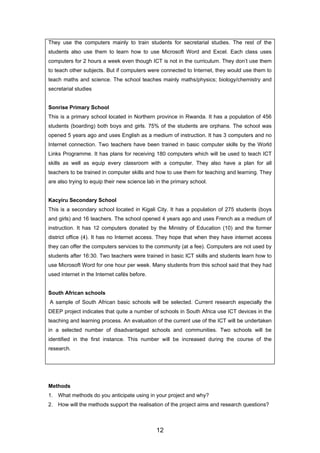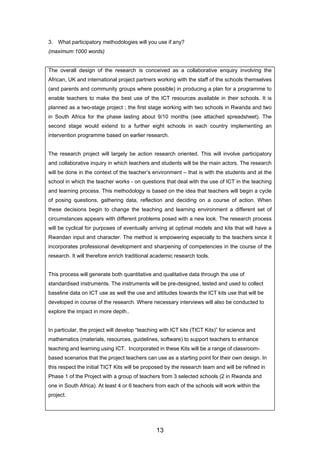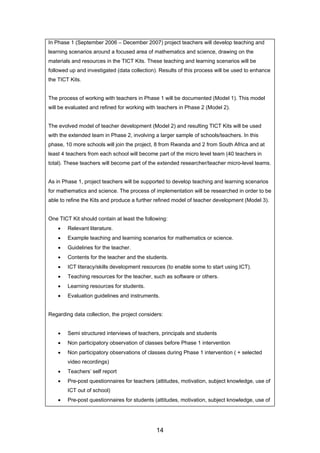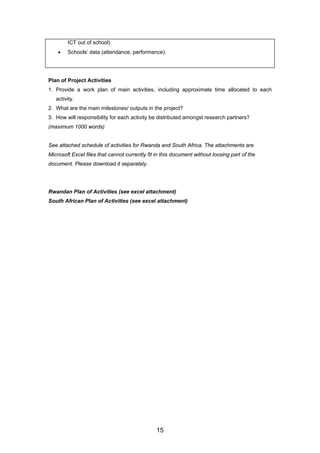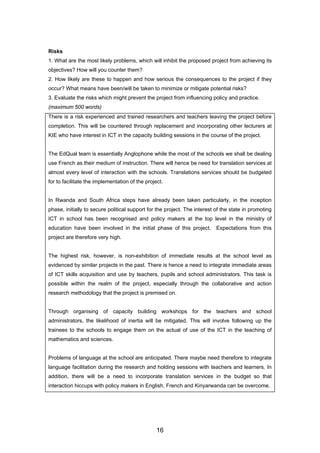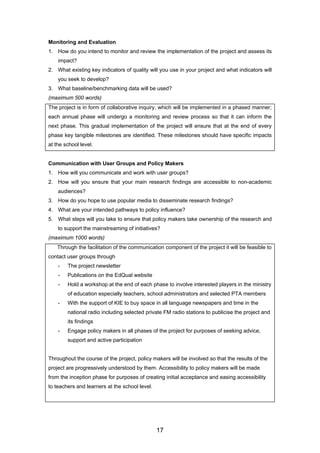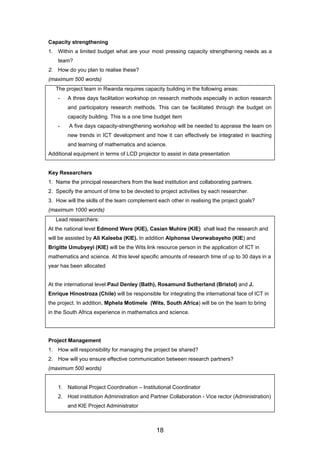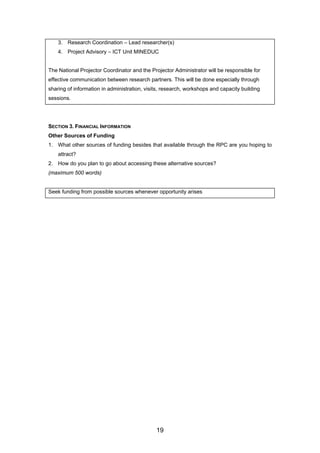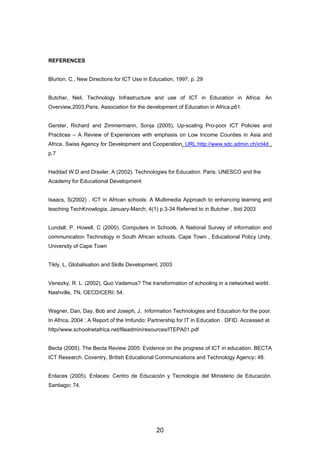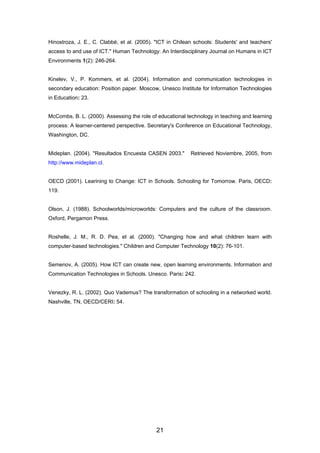This research project proposes to study the use of information and communication technologies (ICT) to support teaching and learning in disadvantaged schools and communities in Rwanda and South Africa. The project aims to develop models for effective ICT introduction and use at the basic education level. It will focus on supporting teacher development and capacity building to effectively integrate ICT into teaching mathematics and science. It also aims to study how ICT can be used to engage and support community development efforts. The project seeks to answer questions about current ICT infrastructure and skills, how ICT can support teaching and learning as well as teacher professional development, and how ICT can help close gender divides in mathematics and science education. Expected outcomes include the development of teaching models using
